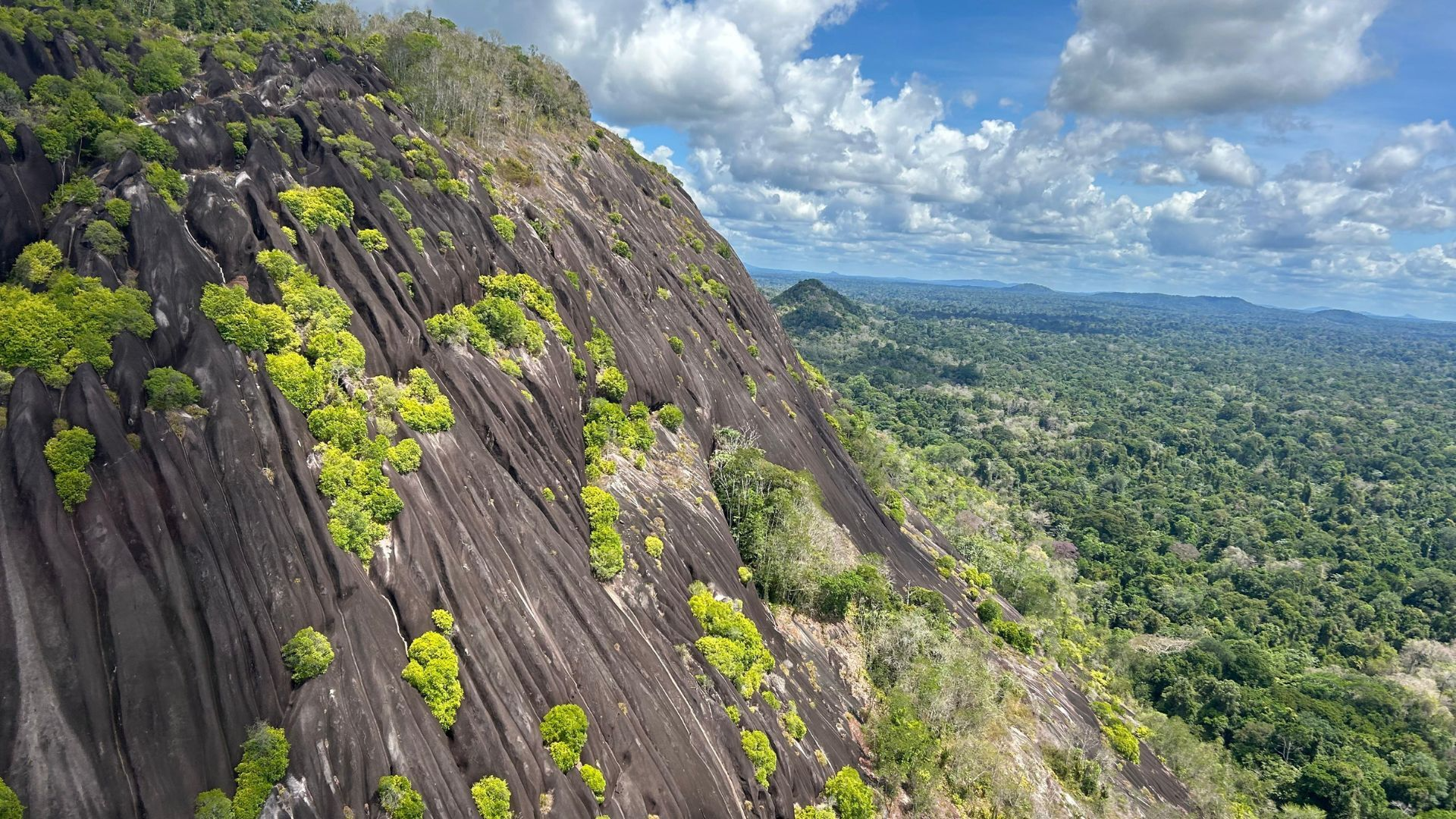As the world’s leaders gather for the second week of the U.N. Climate Change Conference to align around global targets to slow human-induced climate change, 17 countries took the opportunity to commit to investing in solutions to a crisis that is inherently linked to climate change and equally devastating: biodiversity loss.
Ecuador, the UK, Gabon, the Maldives, and 13 other countries have so far committed to directly mobilize and increase financing for parks and protected areas, watershed management, forest management and restoration, wildlife management, combatting invasive species, ensuring sustainable supply chains, and rewilding ecosystems, among other biodiversity conservation actions.
Although a small subset of climate financing has supported these kinds of efforts, the countries that have made the pledge, called the 10-point Plan for Financing Biodiversity, during COP27, agree that a healthy planet depends on public, private, and financial sectors in every country making an investment in biodiversity conservation that is multiple orders of magnitude larger.
“This week’s meeting brings hope that governments of developed and developing countries can put differences aside when urgent action is so needed,” said Gustavo Manrique, Ecuador’s minister of environment, water, and ecological transition. “Protecting biodiversity and reversing its loss is vital. The 10-point Plan is the clearest collective call and the highest global political vision to raise ambition at the Conference of the Parties to the Convention on Biological Diversity 15.2.”
The world currently invests between USD $120 billion and $140 billion a year in biodiversity conservation, usually through local, regional, and national budget expenditures, but also through the private sector and international funding.
The 10-point Plan for Financing Biodiversity, which Re:wild supports, ultimately seeks to transform the economic and financial sectors to be climate-neutral and nature-positive by increasing the mobilization and allocation of new funding. It calls on the private sector to invest in nature-based solutions, and for international institutions, like the International Monetary Fund, to increase their contributions.
Although how best to implement the plan will be one of the main focuses at the upcoming 15th meeting of the Conference of the Parties to the Convention on Biological Diversity in Montreal Dec. 7 to Dec. 15, several countries that have already joined the pledge are implementing innovative solutions to ensure the availability of biodiversity financing.
Colombia, for example, is dedicating funding from a combination of carbon revenue, royalties from extractive industries, and biodiversity offsets from infrastructure development to effectively implement the government’s commitment to conserve 30 percent of the most important areas of the country for biodiversity by 2030 (‘30 by 30’). Ecuador is working on a mixture of innovative financial instruments to finance biodiversity conservation and action.
“There is no doubt that we need to support climate mitigation and a global transition to renewable energy, but unless we also address the interconnected crisis of biodiversity loss, it is going to be hard to make any long-term gains for the planet,” said Patricia Leon, Re:wild’s program officer for the Eastern Pacific. “Biodiversity loss unravels the ecosystems that provide food and clean water, exacerbates the effects of the climate crisis, and heightens the risk of human conflict. On the flip side, these countries are leading the way in acknowledging biodiversity conservation and nature-based solutions as the most critical path toward a thriving planet.”
The other countries that have committed to the 10-point Plan are Nicaragua, the Czech Republic, Canada, Luxembourg, Norway, Belgium, Germany, Denmark, France, the Netherlands, and Bulgaria. The European Union has also recently endorsed the plan. Nearly 30 other countries are poised to commit to implementing the plan.
Countries that have committed to the 10-point Plan for Financing Biodiversity are also calling on governments around the world to progressively end subsidies that are harmful to nature, particularly within the agriculture, fisheries, and forestry sectors.
“We have a clear roadmap for changing the way the world thinks about financing nature, and for making the global economy nature positive,” said Andrew Deutz, director of global policy, institutions, and conservation finance at The Nature Conservancy. “The plan makes it simple to envision the comprehensive suite of actions to get an ambitious outcome in Montreal, and green the global economy.”
Additional quotes
Rt. Hon. Thérèse Coffey, secretary of state for environment, food and rural affairs, United Kingdom “The 10-point Plan provides the only ambitious and credible blueprint for bridging the biodiversity finance gap, commanding the support of developed and developing countries. Together we can support the agreement of an ambitious Global Biodiversity Framework at the biodiversity COP15.2 and save our natural world.”
Steven Guilbeault, minister of environment and climate change, Canada“With this 10-point Plan, you have set a landing zone for COP15.”
Lindsay is the Director of Media Relations for Re:wild and has a particular interest in leveraging communications to inspire conservation action. Lindsay is passionate about species-based conservation and finding compelling ways to tell stories that demonstrate the value of all of the planet’s critters, big and microscopic.




